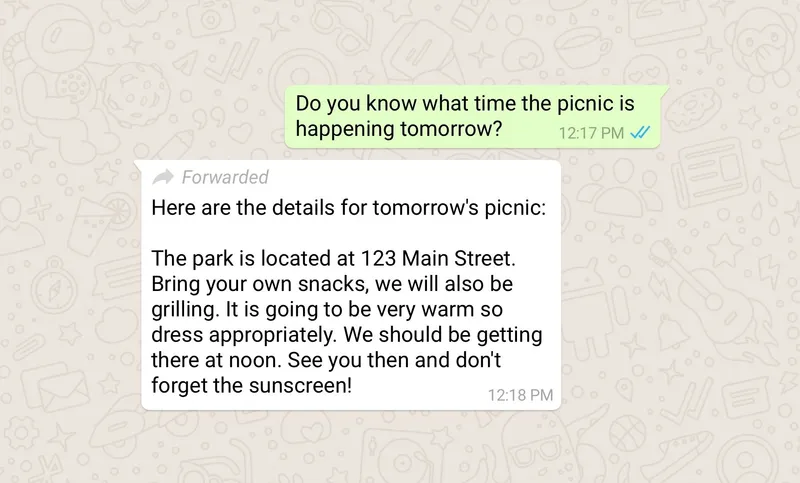WhatsApp rolls out 'forwarded' label for messages in a bid to combat fake news
The forwarded label sits on top of sent/received messages, and is available on Android and iOS with the latest app upgrade.
A week after WhatsApp responded to the Indian government’s concerns surrounding fake news, the messaging service has rolled out a ‘forwarded label’ feature as promised. It is aimed at curbing the spread of rumours and malicious propaganda on WhatsApp that has resulted in a spate of mob lynchings across the country.
The forwarded label, which sits on top of sent/received messages, is rolling out to both Android and iOS users, and will be available with the latest app upgrade. It will help users distinguish between original content and one that is being circulated on the WhatsApp network.

The Facebook-owned messaging service, which has over 1.5 billion daily users, is planning to launch the feature across the world.
WhatsApp wrote in its official blog,
This extra context will help make one-on-one and group chats easier to follow. It will also help you determine if your friend or relative wrote the message they sent or if it came from someone else. WhatsApp cares deeply about your safety. We encourage you to think before sharing forwarded messages.
You can test the feature by selecting any message and forwarding it to another chat (group or individual). Once the label is added to a message, it cannot be removed. The company added,
As a reminder, you can report spam or block a contact in one tap and always reach out to WhatsApp directly for help.
This development is a part of WhatsApp’s efforts to clean up its platform that is increasingly gaining notoriety in India for being a launchpad for misinformation campaigns. With a massive user base of 200 million here, it is imperative for WhatsApp to be more accountable for the information flowing through its network.
Last week, the IT Ministry said:
“the Government has directed [WhatsApp] that spread of such messages should be immediately contained through the application of appropriate technology. It has also been pointed out that such a platform cannot evade accountability and responsibility especially when good technological inventions are abused by some miscreants who resort to provocative messages which lead to spread of violence.”
In response, WhatsApp sought the government cooperation and the assistance of civil society to fight this growing menace. “We believe that false news, misinformation, and the spread of hoaxes are issues best tackled collectively by the government, civil society, and technology companies working together,” it said.
So far, a dozen killings in India have been attributed to fake news on WhatsApp.







